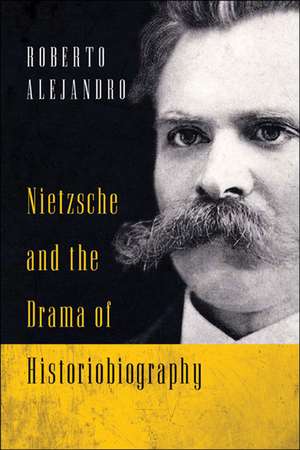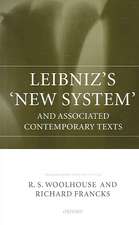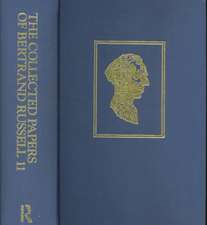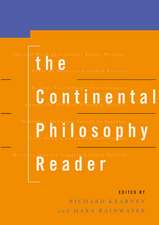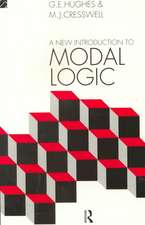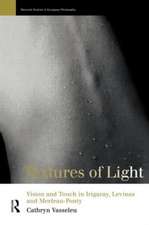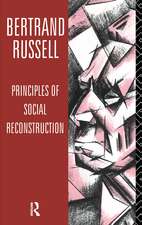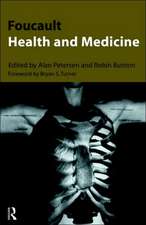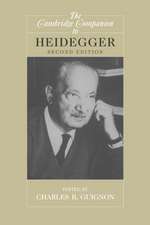Nietzsche and the Drama of Historiobiography
Autor Roberto Alejandroen Limba Engleză Paperback – 14 mai 2011
In this extraordinary contribution to Nietzsche studies, Robert Alejandro offers an original interpretation of Friedrich Nietzsche's philosophy viewed as a complete whole. Alejandro painstakingly traces the different ways in which Nietzsche reconfigured and shifted his analyses of morality and of the human condition, until he was content with the final result: nothing was dispensable; everything was necessary. This is a philosophy of reconciliation--hardly nihilism--and it is a perspective that is not adequately addressed elsewhere in the literature on Nietzsche.
Alejandro traces the evolution of Nietzsche's thought by identifying the different layers of his philosophy, expressed in a complex array of stories and historical narratives. Alejandro analyzes the different stories of Nietzsche, places those stories within a tradition of genealogical theorizing, and interprets both the stories and the genealogy in terms of one of Nietzsche's unique features, his use of "historiobiography." According to Alejandro, historiobiography blends the idea of an attunement with all history and one's awareness of this attunement. As a mode of philosophizing, historiobiography allows Nietzsche to view all human history as if it runs through his own life and thoughts. Alejandro argues that Nietzsche deployed three strategies to find relief from his sense of the meaninglessness of life: his magnified concept of what he himself represented in human history, his doctrine of the eternal recurrence, and his philosophy of reconciliation.
"I am confident that this book will be considered essential reading for any scholar doing serious research into Nietzsche's thought and its implications. . . . The author carefully traces the shifts and turns and occasionally the contradictions and dead-ends in the development of Nietzsche's major themes. I have never read an account of Nietzsche's thought as fully and convincingly supported by textual reference as this book. Others will disagree with the author's readings of Nietzsche, that is the nature of scholarship, but I cannot see how they could be ignored." --Edward Portis, Texas A & M University
"This is a major work on Nietzsche. Robert Alejandro offers us a reading of Nietzsche's Herculean efforts that Nietzsche scholars and scholars who write about modernity and postmodernity will be unable to ignore. This wide ranging and deep book addresses major issues in cultural history, psychoanalysis, cultural anthropology, and the vast literature on modernity and secularization. I expect this to be a book that generates debate and discussion for years to come." --Robert Hollinger, Iowa State University
"Robert Alejandro delivers a rich, lively account of Nietzsche's quest for meaning. By focusing on the theme of historiobiography, Alejandro illuminates Nietzsche's bold attempt to place himself at the center of a comprehensive account of the rise and fall of Western civilization. A thoughtful, well-crafted book, written very much in the spirit of Nietzsche himself." --Daniel Conway, Texas A & M University
Alejandro traces the evolution of Nietzsche's thought by identifying the different layers of his philosophy, expressed in a complex array of stories and historical narratives. Alejandro analyzes the different stories of Nietzsche, places those stories within a tradition of genealogical theorizing, and interprets both the stories and the genealogy in terms of one of Nietzsche's unique features, his use of "historiobiography." According to Alejandro, historiobiography blends the idea of an attunement with all history and one's awareness of this attunement. As a mode of philosophizing, historiobiography allows Nietzsche to view all human history as if it runs through his own life and thoughts. Alejandro argues that Nietzsche deployed three strategies to find relief from his sense of the meaninglessness of life: his magnified concept of what he himself represented in human history, his doctrine of the eternal recurrence, and his philosophy of reconciliation.
"I am confident that this book will be considered essential reading for any scholar doing serious research into Nietzsche's thought and its implications. . . . The author carefully traces the shifts and turns and occasionally the contradictions and dead-ends in the development of Nietzsche's major themes. I have never read an account of Nietzsche's thought as fully and convincingly supported by textual reference as this book. Others will disagree with the author's readings of Nietzsche, that is the nature of scholarship, but I cannot see how they could be ignored." --Edward Portis, Texas A & M University
"This is a major work on Nietzsche. Robert Alejandro offers us a reading of Nietzsche's Herculean efforts that Nietzsche scholars and scholars who write about modernity and postmodernity will be unable to ignore. This wide ranging and deep book addresses major issues in cultural history, psychoanalysis, cultural anthropology, and the vast literature on modernity and secularization. I expect this to be a book that generates debate and discussion for years to come." --Robert Hollinger, Iowa State University
"Robert Alejandro delivers a rich, lively account of Nietzsche's quest for meaning. By focusing on the theme of historiobiography, Alejandro illuminates Nietzsche's bold attempt to place himself at the center of a comprehensive account of the rise and fall of Western civilization. A thoughtful, well-crafted book, written very much in the spirit of Nietzsche himself." --Daniel Conway, Texas A & M University
| Toate formatele și edițiile | Preț | Express |
|---|---|---|
| Paperback (1) | 319.42 lei 6-8 săpt. | |
| MR – University of Notre Dame Press – 14 mai 2011 | 319.42 lei 6-8 săpt. | |
| Hardback (1) | 686.87 lei 6-8 săpt. | |
| MR – University of Notre Dame Press – 14 ian 2022 | 686.87 lei 6-8 săpt. |
Preț: 319.42 lei
Nou
Puncte Express: 479
Preț estimativ în valută:
61.15€ • 62.89$ • 50.73£
61.15€ • 62.89$ • 50.73£
Carte tipărită la comandă
Livrare economică 19 februarie-05 martie
Preluare comenzi: 021 569.72.76
Specificații
ISBN-13: 9780268020378
ISBN-10: 026802037X
Pagini: 392
Dimensiuni: 153 x 228 x 24 mm
Greutate: 0.58 kg
Ediția:1st Edition
Editura: MR – University of Notre Dame Press
ISBN-10: 026802037X
Pagini: 392
Dimensiuni: 153 x 228 x 24 mm
Greutate: 0.58 kg
Ediția:1st Edition
Editura: MR – University of Notre Dame Press
Recenzii
"I am confident that this book will be considered essential reading for any scholar doing serious research into Nietzsche's thought and its implications. . . . The author carefully traces the shifts and turns and occasionally the contradictions and dead-ends in the development of Nietzsche's major themes. I have never read an account of Nietzsche's thought as fully and convincingly supported by textual reference as this book. Others will disagree with the author's readings of Nietzsche, that is the nature of scholarship, but I cannot see how they could be ignored." —Edward Portis, Texas A & M University
"Roberto Alejandro delivers a rich, lively account of Nietzsche's quest for meaning. By focusing on the theme of historiobiography, Alejandro illuminates Nietzsche's bold attempt to place himself at the center of a comprehensive account of the rise and fall of Western civilization. A thoughtful, well-crafted book, written very much in the spirit of Nietzsche himself." —Daniel Conway, Texas A & M University
"This is a major work on Nietzsche. Roberto Alejandro offers us a reading of Nietzsche's herculean efforts that Nietzsche scholars and scholars who write about modernity and postmodernity will be unable to ignore. This wide ranging and deep book addresses major issues in cultural history, psychoanalysis, cultural anthropology, and the vast literature on modernity and secularization. I expect this to be a book that generates debate and discussion for years to come." —Robert Hollinger, Iowa State University
“Alejandro may have put his finger on the secret to Nietzsche’s appeal by emphasizing the redemptive motif in Nietzsche’s writings. Nietzsche saw humans as ‘religious animals’—unique among living creatures in demanding meaning for their lives. And he presents himself as a redeemer (ecce homo) who offers meaning. . . . The three major metaphors of Nietzsche’s story are the will to power, the overman, and eternal recurrence. Taken together they enable Nietzsche ‘to relate the real story of Christianity’ and make him, as Erich Heller has pointed out, one of the most radical religious writers of the 19th century.” —Choice
"In Nietzsche and the Drama of Historiobiography, Roberto Alejandro challenges this tradition and attempts to redefine the meaning of Nietzsche's entire corpus, offering an interpretation that integrates man and work, and highlights parallel tensions in both. His book offers a fresh and thoughtful reconsideration of Nietzsche's lifelong project. . . . Ultimately, this book records a unified vision of Nietzsche's work that is stimulating, fresh, and valuable." —Dialogue
“Alejandro’s critical reflections cut to the core of Nietzsche’s arguments for constructing a healthy culture, and his prescriptions for becoming an authentic thinker.” — Foucault Studies
Notă biografică
Roberto Alejandro is professor of political science at University of Massachuetts at Amherst.
